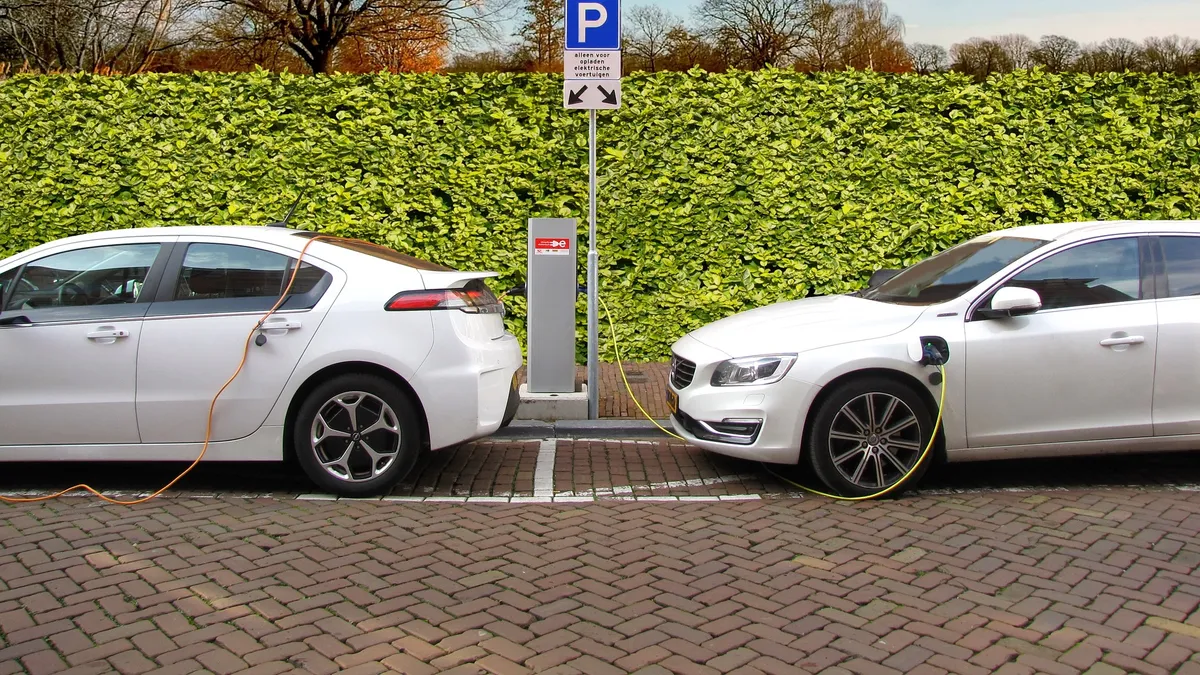Dive Brief:
- The United Kingdom will require all new homes be built with electric car chargers "where appropriate," as part of a new plan to have at least half of the country’s cars be ultra low emission by 2030.
- The U.K.’s "Road to Zero" report says the government will establish a £400 million ($528 million) fund for new and existing companies that produce and install charging infrastructure. Electric vehicle owners will be eligible for a £500 ($660) incentive to install chargers in their homes.
- Looking to the future of electric charging, the government will also establish a £40 million ($53 million) program to research and test wireless and on-street charging.
Dive Insight:
The charging strategy is a step in the U.K.’s plan to clean up its car fleet, with the ultimate goal of stopping sales of conventional fuel vehicles by 2040. London Mayor Sadiq Khan last month also laid out a plan to cut the city’s transportation emissions to zero by 2050, with a strategy that would electrify taxis and private hire vehicles first, followed by city buses and then all remaining vehicles. Chris Grayling, Secretary of State for Transport, said the national strategy "sets out a clear path for Britain to be a world leader in the zero emission revolution — ensuring that the U.K. has cleaner air, a better environment and a stronger economy."
A continued focus on charging infrastructure will be necessary to increase deployment of EVs worldwide. A 2017 report from the U.S. Department of Energy found that some 600,000 non-residential chargers would be required to meet the country’s goal of 15 million EVs by 2030.
That’s prompted some cities to take action; Atlanta last year passed a regulation requiring that builders install electrical infrastructure to support EV chargers in all new residential and commercial buildings. San Francisco requires that 10% of parking spaces in all new buildings have circuits for EV chargers, and the capability to charge 20% of parking spaces.
Home chargers can only go so far, since drivers want assurances that they can charge at their workplaces and especially on long trips. Research into wireless and on-street charging will go a long way, especially if it results in charging ports on existing infrastructure like light poles. As part of the initiative, the U.K. will also use power from a bill passed last year to install chargers at motorway service stations and gas retailers, making them available to travelers.











